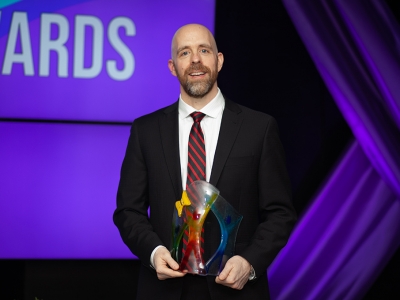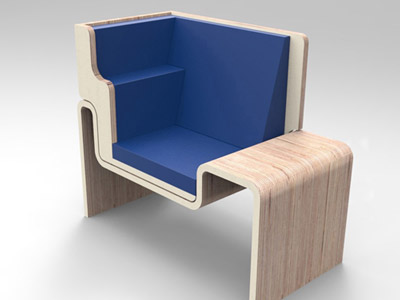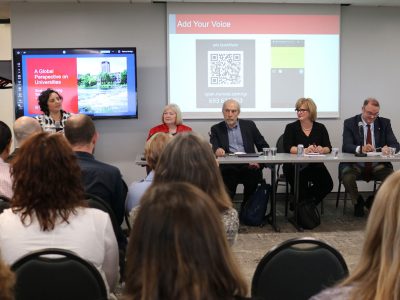By Dan Rubinstein
Photos by Chris Roussakis
As a young chemistry researcher, Chuck Macdonald developed a deep interest in making new types of molecules.
By finding methods to get atoms to bind together in atypical ways, he could explore the novel properties of these fundamental particles and probe a wide range of potential applications, or share the molecules with collaborators who could incorporate them into their own projects.
Macdonald, who became the dean of Carleton’s Faculty of Science on Aug. 1 after 17 years in a series of increasingly senior positions at the University of Windsor, plans to bring this scientific mindset to his new leadership role.
By encouraging his colleagues to transcend departmental and disciplinary boundaries, he can help students, faculty and staff achieve their potential and have an impact that reaches far beyond the university campus.
“As a scientist, I’ve worked on lots of collaborative projects with people from all over the world,” says Macdonald.
“The way science is done now, most if it involves teams — experts from a variety of different areas working together to take on a problem that they wouldn’t be able to solve by themselves.”
Unlike Macdonald, Dean Pauline Rankin at the Faculty of Arts and Social Sciences (FASS), the other new faculty head at Carleton this fall, has a long history at the university. She became an instructor here in 1990 before finishing her PhD and served as associate dean (Research and Graduate Affairs) of FASS and associate vice-president (Research and International) before she was appointed dean July 1.
But the gender studies scholar shares Macdonald’s commitment to cross-disciplinary collaboration.
Rankin’s recent three-year post in the Office of the Vice-President (Research and International) gave her a campus-wide perspective on how various faculties work together — and how these relationships can be expanded and enhanced.
“There’s a permeability between faculties and departments at Carleton,” she says. “Collaborating with colleagues regardless of their background is critically important. When you look at the university as a single institution, you see opportunities in the cracks.”
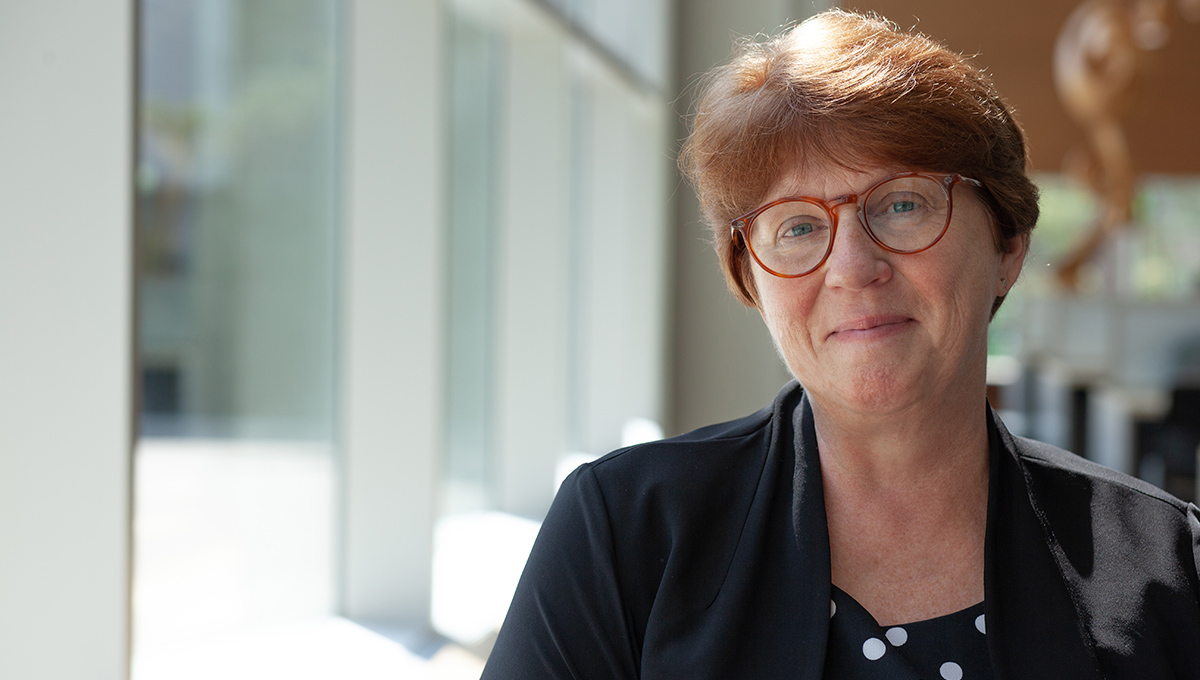
Photo of Dean Pauline Rankin by Fangliang Xu
Deep Knowledge of the Carleton Community Gives Rankin an Edge
Rankin, the first female Carleton alumna appointed for a full-term decanal position, plans to use her broad expertise in research, internationalization and gender equity in FASS. Although there is still a learning curve, knowing 90 per cent of the faculty and administrative staff already provides a great platform.
“The past decade at FASS focused seriously and successfully on issues related to teaching and learning,” she says.
“The undergraduate experience remains crucial to the success of this faculty and the university as a whole, but I think now is the time to focus on the world-class research of our professors and students.”
These professors and students come to FASS from all over the world and conduct research overseas, and there are several programs in place to send Canadian scholars abroad, but Rankin feels the faculty can do more to take advantage of international opportunities.
Participating in the ongoing process of Indigenization at Carleton is also a priority for Rankin. “This means not only hiring more Indigenous faculty and welcoming more Indigenous students,” she says, “but also being part of how the university responds to the Truth and Reconciliation Commission. I want to see what’s possible within FASS and within Carleton as a whole.”
Mental wellness is another priority. “Some people may say this is not the purvey of a dean, but fully supporting our students, faculty and professional staff is critically important,” says Rankin, whose discussions with the Psychology Department led to plans for the department’s upcoming Mental Health Day on Oct. 18.
One of the biggest files on her desk is Carleton’s recent acquisition of Dominion-Chalmers United Church, which the university will be transforming into a multi-purpose performance and learning space for students and faculty and a downtown community and cultural hub.
“This is a really exciting and potentially game-changing opportunity for FASS,” says Rankin.
“It will be used particularly by our music program and for a range of cultural programming, and the university has an unprecedented opportunity for a new type of community engagement. My challenge will be to talk to colleagues and together come up with a vision for the space and a plan for how to implement it. The purchase has been finalized but we’re still in the ‘what’s next?’ phase.”
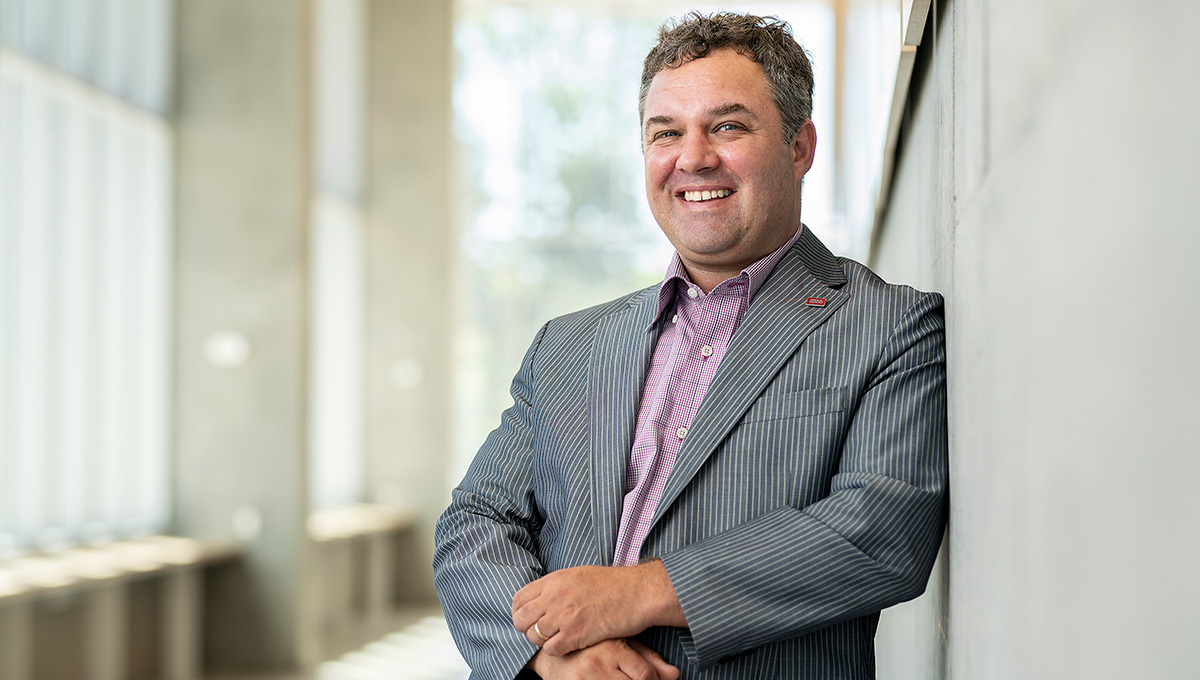
Solving Organizational Problems a Passion for Macdonald
Macdonald, who spent seven years as associate dean of Science at Windsor, nearly a year as acting dean, and a year as head of the school’s Chemistry and Biochemistry Department, has some of the same faculty-wide perspectives as Rankin.
He was deeply involved in areas such as research funding, scholarships and staff support at an institution that, as another comprehensive university in Ontario, deals with a lot of issues and government policies that have a bearing on Carleton.
“I like having an opportunity to solve organizational problems,” says Macdonald, who earned his undergraduate degree and PhD at Dalhousie University in his hometown of Halifax and then spent three years as a postdoctoral fellow at the University of Texas.
“That’s essentially the role of a dean — to make things work better for students and faculty members. You do this through influence and persuasion; you don’t dictate. The job requires a lot of listening.
“There’s a lot of change happening at Carleton right now,” he adds. “One of the things I’m happy about is that we’re not necessarily restricted by what was done here before. I want to learn why things are the way they are, and then ask if there’s another way — or a better way.”
To Macdonald, one of the draws of a position at Carleton is the university’s location in the national capital. That translates into research partnerships and co-op placements for faculty and students with organizations such as the National Research Council, where his sister happens to work, as well as access to federal agencies where the country’s scientific policy agenda is set.
Macdonald, who moved to Ottawa with his wife, a biochemist who is also now working at Carleton, and their two young sons, has another family connection to the capital. One of his great uncles was Senator John M. Macdonald, one of the last Canadian senators appointed for life.
As dean, his plan over the next couple of months is to meet as many different people from the faculty as he can and ask what they see as specific departmental strengths and challenges. But he does have a pair of overarching priorities in mind: more experiential learning opportunities for students and an emphasis on the value of public outreach and science communication, because it helps protect people from misinformation and allows them to make informed decisions.
“There’s a push right now, not just provincially but also nationally and internationally, for universities to get involved in more experiential learning,” Macdonald says, citing Carleton’s unique partnership with e-commerce leader Shopify as an example of what the Faculty of Science is doing. “In science, that’s always been the way that education is approached. The most important part of your degree, whether you’re a grad student or an undergraduate, is hands-on research. This helps you develop skills that are in demand by industry and government.
“One of the jobs of universities is to create new knowledge,” he continues. “Research does that, and at the same time it provides training to students, especially if they’re working on projects with industry or government. Most of our graduates are going to work in those environments, and it’s our responsibility to prepare them for the next step.”
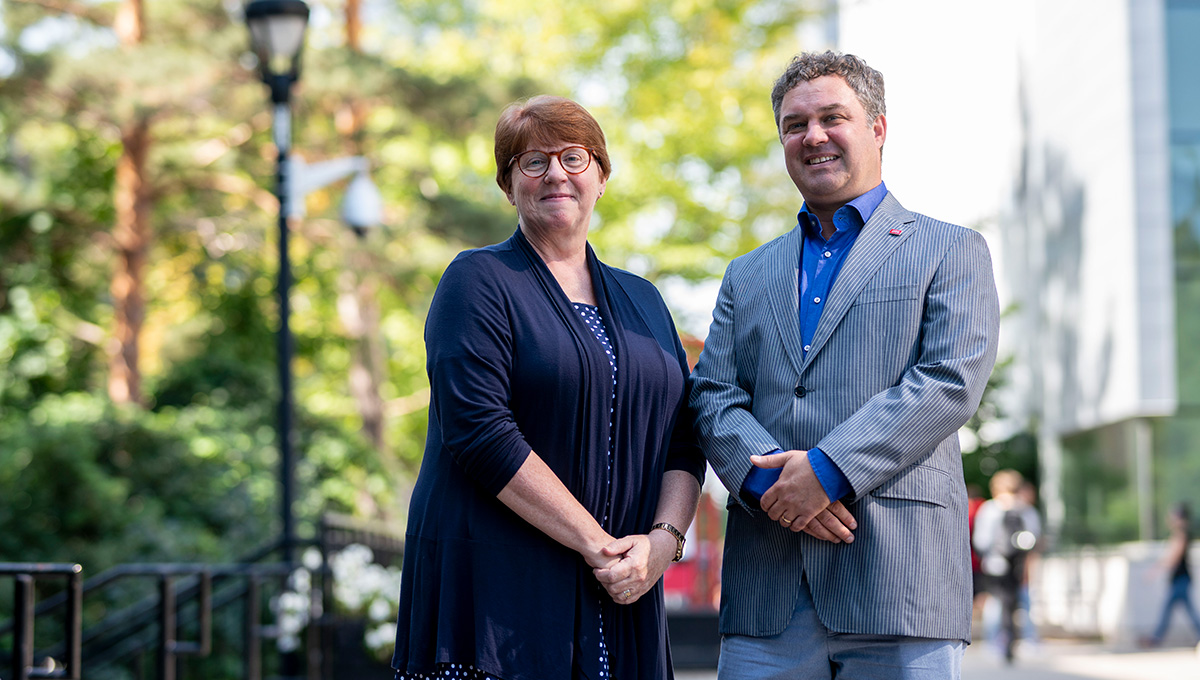
An Introduction to the Wider World
Rankin, who grew up on a farm in the Ottawa Valley, is a strong champion for the humanities and social sciences.
“The dean of FASS has to be a translator,” she says, “to show how what we do is not only applicable to society, but also how this type of learning helps with both self-development and with how we interpret the world around us, which is relevant work in and of itself.”
Neither of Rankin’s parents finished high school and there weren’t a lot of books in their rural home, yet they sacrificed to allow her to study piano and sing in a choir — to ensure that their daughter participated in activities that introduced her to the wider world.
“An arts education changed the trajectory of my life,” says Rankin, who went to the University of Toronto for an undergraduate degree in English Literature and then to Carleton for a master’s in Canadian Studies and a PhD in Political Science.
“Every September, I reflect back on the journey that I took,” she says, thinking about all of the new students arriving at Carleton for the 2018-‘19 academic year, “and believe that there’s a real opportunity for first-generation students — like I was — to transform themselves and their families. Which makes it a very formidable responsibility that we have.”
Rankin’s graduate research explored the relationship between gender and political systems, with a focus on activism and Canadian women’s movements, which segued to her work on gender mainstreaming — how governments integrate gender issues into their policy-making.
This expertise on gender and public policy led to international work, such as Rankin’s current involvement in a project on the legal aid system in the Ukraine and another on women and entrepreneurship in Jordan, with which she’s still actively engaged.
She’s excited about coming to work every day because each day is different. The biggest occupational hazard, says Rankin, is over-stimulation.
“I never had a plan for my career,” she says.
“The best plan is to be open to opportunities. If it sounds interesting, say yes and figure it out along the way.”
After all, you never know what serendipitous directions or discoveries will emerge when people or particles connect in unexpected ways.
Wednesday, September 12, 2018 in Faculty of Arts and Social Sciences, Faculty of Science
Share: Twitter, Facebook
